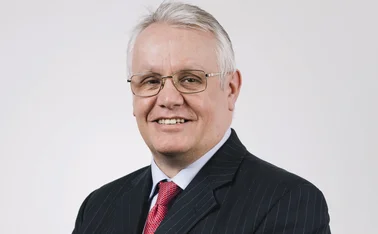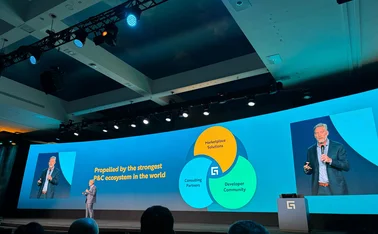
Closing the claims liquidation loophole

Regulatory powers to crack down on rogue claims management companies are to be passed to the Financial Conduct Authority
It took 481 complaints from the public and a year-long investigation by the Information Commissioner’s Office.
But soon after West Yorkshire-based claims management company Reactiv Media was fined £75,000, it was put into the hands of a liquidator.
The debt remains unpaid, and the former owner of Reactiv, Tony Abbott, now operates another company called Flip It Marketing. Calls to the old Reactiv number are automatically diverted to Flip It.
A manager at Flip It, who declined to be named, told Post: “We are well within the law and have done nothing wrong.”
The manager has a point, Flip It Marketing is within the law as long as the liquidation loophole exists.
Closing the loophole
In 2014, 175,000 complaints were made to the ICO and, as a result, in April last year, there was a law change allowing the ICO to fine businesses up to £500,000.
The ICO is no longer bound by the old law that restricted it from getting involved in cases where a company caused ‘substantial damage or substantial distress’. The body can now get involved in many more cases than it was previously permitted.
Yet, despite advances in regulation, rogue CMCs can still dodge fines and set up shop elsewhere. Through a 10 Minute Rule Bill that would see company directors fined, rather than their businesses, Patricia Gibson, Scottish Nationalist Party MP, is striving to close the loophole.
“A lot of these fines are simply not paid. A company can have the exact same premises and personnel but close down the company and start under a different name,” said Gibson.
“The current solution isn’t working but the 10 Minute Rule Bill that I have pushed through would mean that bills are imposed on the named directors of the company so they can’t escape.
“In that case, directors would pay far more attention to making sure their company is abiding by the law in the first place. A company being caught and fined is a good thing but it’s only cosmetic unless the fine is actually paid.”
In a bid to crack down on the more unsavoury CMCs, the government has proposed to pass on the regulatory powers from the Claims Management Regulator to the Financial Conduct Authority. In the Brady Report, the government is in line with Gibson’s thinking that it is managers who should be fined.
“The new regime will be tougher and will ensure CMC managers can be held personally accountable for the actions of their businesses,” commented HM Treasury when the report was released in March.
The handing over of regulatory powers to the FCA is likely to take place in 2018, however, the report says that the move should not phase out CMCs.
“A well-functioning CMCs market can also act as a check and balance on the conduct and complaint handling processes of businesses, thereby benefitting the public interest,” said the report.
“The overwhelming majority of stakeholders, including the banking and insurance industries, which have been hardest hit by CMC misconduct, argued that there is a legitimate need for CMCs and that the government should not seek to regulate them out of existence.”
It is true that the wrongdoing of certain phoenix companies and the like have meant that the reputations of the genuinely good ones have suffered. Lee Riley, managing director of Auto Legal Protection Services, said that the public along with regulatory bodies need to take a more active approach.
“Cold calling isn’t new and certainly isn’t restricted to CMCs ringing about payment protection insurance or personal injury, banks and double glazing firms have been doing it for years,” said Riley.
“There will always be unscrupulous individuals and companies in any industry. There are measures in place for targeting problem CMCs, yet the monitoring and enforcement of subsequent penalties can certainly be improved.
“What really needs to happen is better governance, faster action and much tougher penalties for cold calling to the general public as a whole.”
When we talk about cold calling, members of the public are frequently seen to be at the mercy of miscreant businesses hassling them into making a claim. But, the fact remains, some people will quite readily make a fraudulent claim and are subsequently part of the problem.
“Society has certainly changed in terms of the way people look at lots of things – not just making a claim,” said Riley.
“However, the values of an individual will still hold true when making a claim, whether this be for a small household loss or a large commercial claim.
“Tackling fraud of any kind should be a key priority for the industry and there are certainly some successes. However, to be completely successful at this, it needs the collaboration of both the defendant and claimant sectors.”
For Ben Fletcher, director of the Insurance Fraud Bureau, online platforms can cause difficulty when trying to figure out whether or not a claim is genuine. The referral platform in any claims notification means that claimants do not have to indicate where their claim was originally generated and, therefore, CMCs can operate surreptitiously.
“In many of the organised fraud scams we have seen, the main denominator has been the referral platform,” said Fletcher.
“When filling out the form, the only one piece of information that the claimant doesn’t have to disclose is how the case was generated in the first place. What that allows these companies to do is operate invisibly in the background and they could pass those claims to four different law firms. The insurance company could see those claims come through and they see those claims being presented by the four law firms.”
What the situation is crying out for, said Fletcher, is heavier regulation and more transparency.
“The problem is exacerbated by the landscape around nuisance calls and there is not one regulator to deal with them,” said Fletcher.
“We certainly welcome the move of regulation to the FCA. We have been calling for improved due diligence techniques in pressuring CMCs to publish their financial returns. It should be a requirement for them to give records on what they’re involved in.”
More needs to be done
Ben FitzHugh, head of intelligence at BLM, agrees that more needs to be done overall to tackle rogue CMCs.
“There are certain rogue CMCs that will undermine the upstanding ones that are doing a good job,” said FitzHugh.
“They have a negative effect on the reputation of good claimant lawyers and ultimately they promote the misfounded view that they’re all ambulance chasers. The industry is at risk from being flooded by spurious and false claims, which has a negative impact on our reputation.”
Members of the public are also involved in the wrongdoing that is perpetrated by these dodgy companies. Through the efforts of the IFB and the Insurance Fraud Enforcement Department, those who are caught are being held up as examples of the consequences.
“There is a pocket of individuals who think that it’s acceptable to put forward a false or exaggerated claim,” said FitzHugh.
“A lot of good work is being done from within the industry, certainly from the IFB and IFED. They have both had huge success with convicting insurance fraudsters.”
In terms of making sure that spurious claims are not paid out, most insurers are diligent in making sure they don’t give in to the fraudsters. The possible damage a CMC can have by pushing forward dodgy claims can be nullified as long as insurers are firm in not paying out.
“Different insurers have different attitude to dealing with suspected fraud claims. But, ultimately, the point is that an insurer is unlikely to want to pay out if they suspect a claim to be fraudulent,” said FitzHugh.
“There is a lot of work that goes into making sure that the claim is valid and that there is sufficient evidence and a lot is done in the validation process to make sure that these claims actually stand up.
“In terms of the FCA taking over the regulation of these companies, though a lot of work has already been done, any effort to build upon the regulation can only be a good thing.”
To improve its reputation, the industry is counting on tighter regulation and a consistency in heavy penalties. Without coming down hard on rogue CMCs, legitimate businesses could end up being tarred with the same brush.
Only users who have a paid subscription or are part of a corporate subscription are able to print or copy content.
To access these options, along with all other subscription benefits, please contact info@postonline.co.uk or view our subscription options here: http://subscriptions.postonline.co.uk/subscribe
You are currently unable to print this content. Please contact info@postonline.co.uk to find out more.
You are currently unable to copy this content. Please contact info@postonline.co.uk to find out more.
Copyright Infopro Digital Limited. All rights reserved.
As outlined in our terms and conditions, https://www.infopro-digital.com/terms-and-conditions/subscriptions/ (point 2.4), printing is limited to a single copy.
If you would like to purchase additional rights please email info@postonline.co.uk
Copyright Infopro Digital Limited. All rights reserved.
You may share this content using our article tools. As outlined in our terms and conditions, https://www.infopro-digital.com/terms-and-conditions/subscriptions/ (clause 2.4), an Authorised User may only make one copy of the materials for their own personal use. You must also comply with the restrictions in clause 2.5.
If you would like to purchase additional rights please email info@postonline.co.uk








